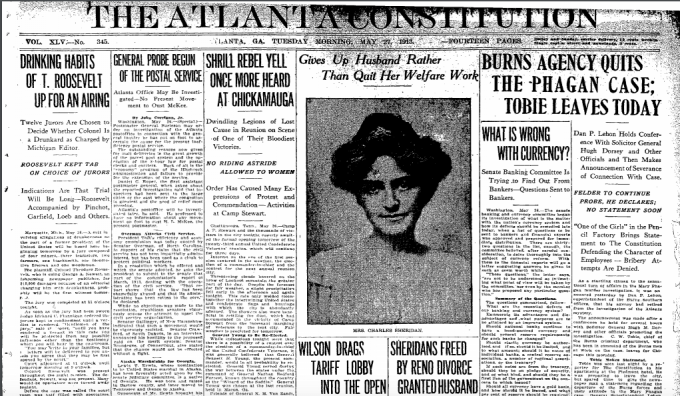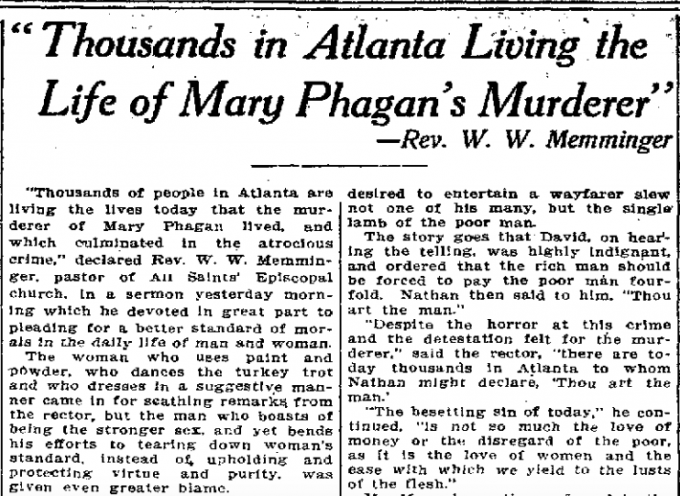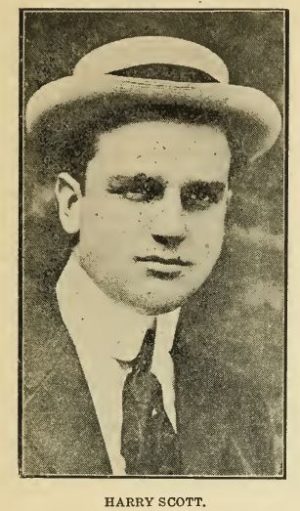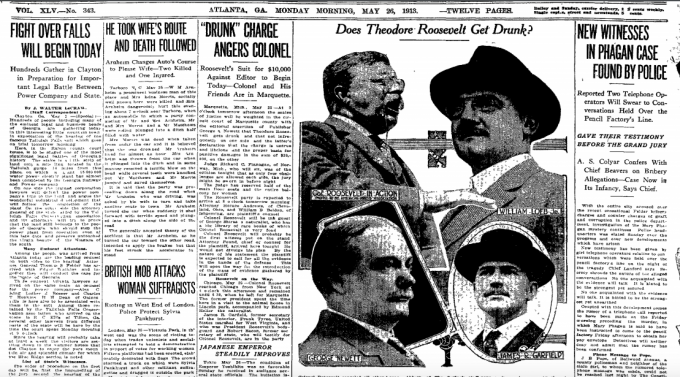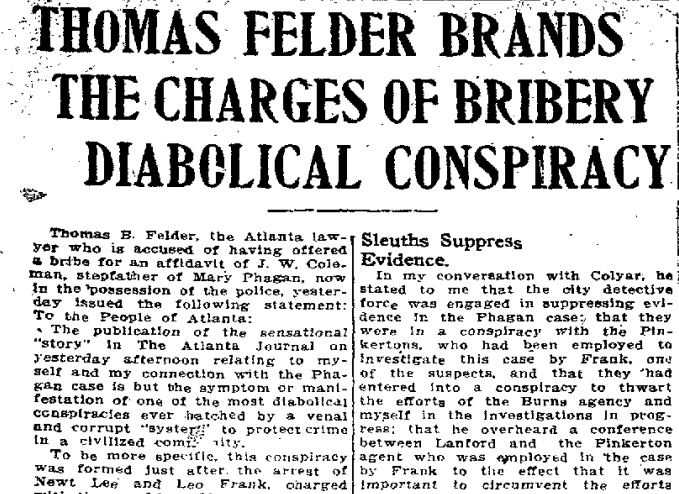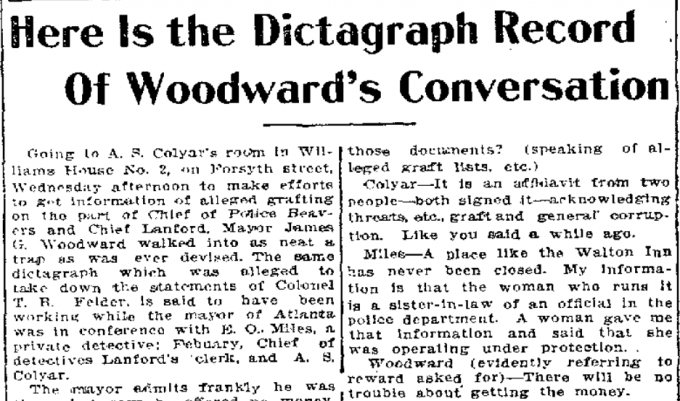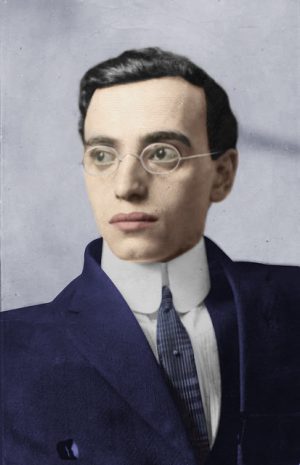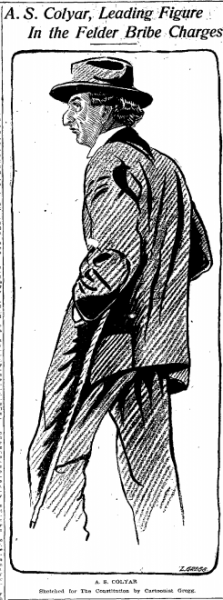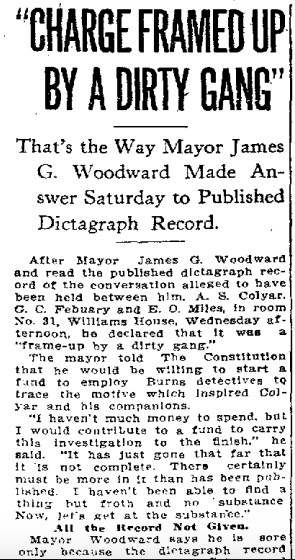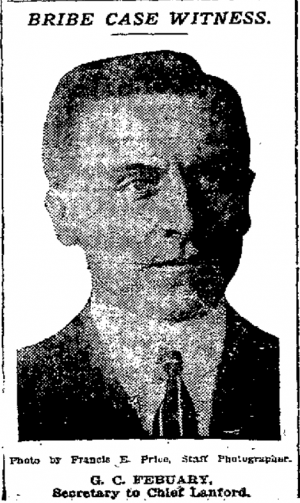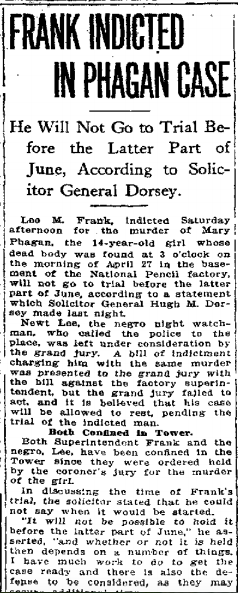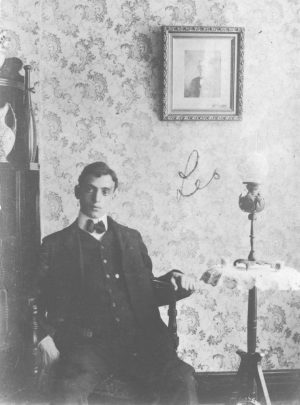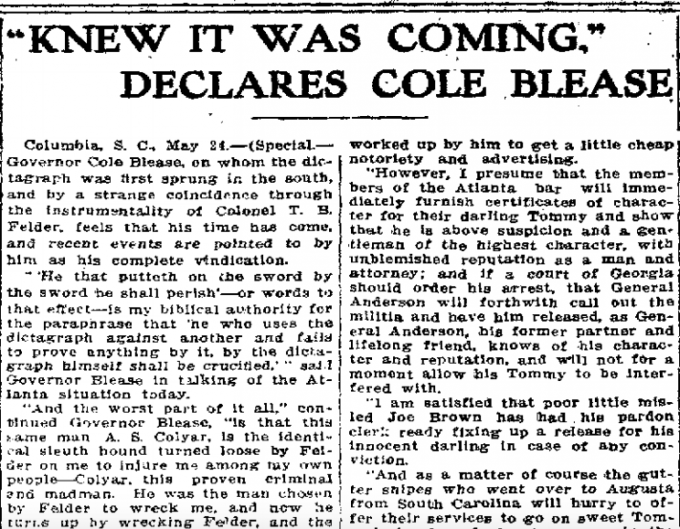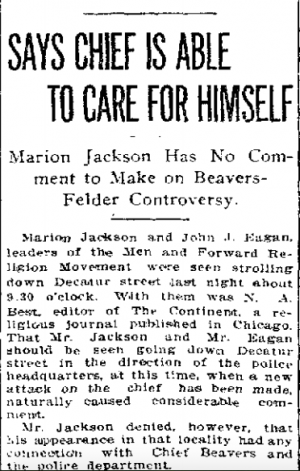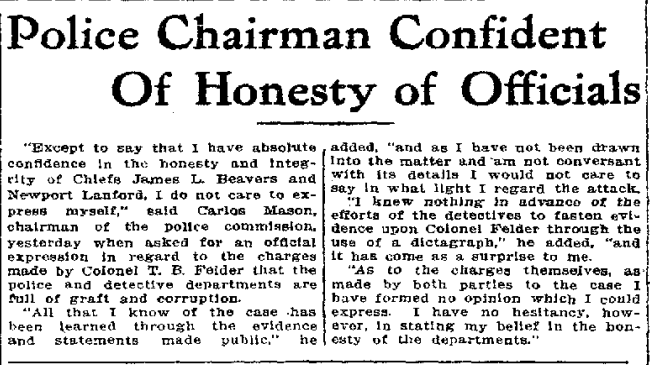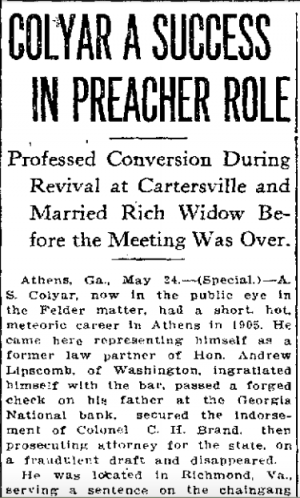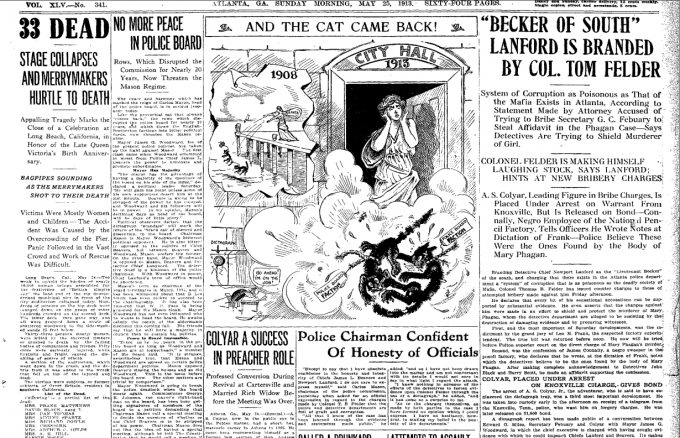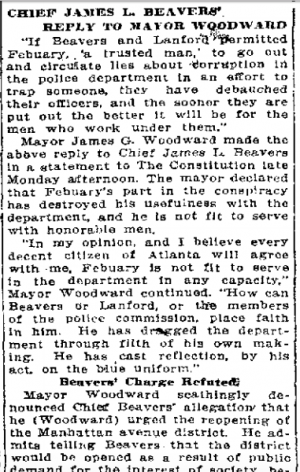 Another in our series of new transcriptions of contemporary articles on the Leo Frank case.
Another in our series of new transcriptions of contemporary articles on the Leo Frank case.
Atlanta Constitution
Tuesday, May 27th, 1913
“If Beavers and Lanford permitted Febuary, ‘a trusted man,’ to go out and circulate lies about corruption in the police department in an effort to trap someone, they have debauched their officers, and the sooner they are put out the better it will be for the men who work under them.”
Mayor James G. Woodward made the above reply to Chief James L. Beavers in a statement to The Constitution late Monday afternoon. They mayor declared that Febuary’s part in the conspiracy has destroyed his usefulness with the department, and he is not fit to serve with honorable men.
“In my opinion, and I believe every decent citizen of Atlanta will agree with me, Febuary is not fit to serve in the department in any capacity.” Mayor Woodward continued. “How can Beavers or Lanford, or the members of the police commission, place faith in him. He has dragged the department through filth of his own making. He has cast reflection, by his act, on the blue uniform.”
Beavers’ Charge Refuted.
Mayor Woodward scathingly denounced Chief Beavers’ allegations that he (Woodward) urged the reopening of the Manhattan avenue district. He admits telling Beavers that the district would be opened as a result of public demand for the interest of society, because of the scattered conditions.
He declared that he has never placed a straw in the way of Chief Beavers’ vice crusade, and explained that whenever he called the chief to his office it was for the purpose of referring complaints to him—complaints of bad conditions in respectable neighborhoods.
Mayor Woodward said that on one occasion he referred to the chief a letter written by a respectable woman—the mother of little children—who complained that there was an immoral house near her home, and she wanted the police to protect her and her babies.
“This woman told me that she had written Chief Beavers about the house some ten days before she wrote me, and nothing was ever done,” Mayor Woodward said. “All that I have ever heard of the complaint is that the house is quieted down.” Continue Reading →

